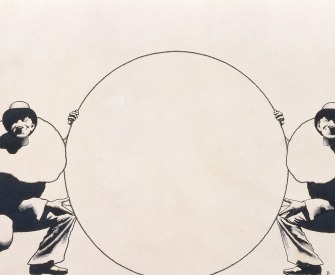Fellow Students,
Our brother in learning, or rather dreaming, hath commended that which is an enemy to study, viz., sleeping and dreaming, wherefore in the drowsy world and dreaming life there be no scholars, for they cannot sleep to study, nor dream so much as to be very learned; neither are there poets, for poets live altogether in their own poetical world and contemplative life; neither are there eloquent orators, for dreams will be faded before an oration is half-spoken, or else the subject of their oration will be lost in the variousness of dreams; neither can there be pleaders at the bar nor preachers in the pulpit, for their text and cases may be altered in a moment of time, from Gospel to a romance, from law to riot; neither can there be justice on life and death, for by the alteration of dreams, the thief may escape and the honest man hang, or the judge may hang himself; neither can there be a settled government in dreams, for the government may end in a piece of a dream, or instead of a commonwealth of men, be a forest of wild beast; neither can there be wise councillors or grave statesmen, for their gray faces and gray beards may be changed into monkeys’ faces and goats’ beards, and the wise councillors in the midst of their serious advices may on a sudden sing a wanton song, or else there may suddenly appear a tumultuous monster or a monstrous tumult, where in a great fright they will run from their council board or senate house; and as for school arguments and disputations, they are quite banished, and for lovers, a hundred to one that when a dreaming lover is embracing a young fair lady, she suddenly turns into an old ill-favored witch, or for a plump, smooth, smiling Venetian courtesan, he chances to embrace grim Death’s bare rattling bones, which will fright a lover more than a fair mistress can delight him; and as for dancing balls and French fiddles, when the gallants in dreams are dancing in smooth measures and with fair ladies, and the music keeping tune to the dancing time, on a sudden the courtly dancers or dancing courtiers turn topsy-turvy, dancing with their heads downward and heels upward, a very unbecoming posture for fair-faced ladies; and as for the music, that is quite out of tune, and the fiddle strings broken, and the musicians as mad as March hares, and many other suchlike disorders, confusions, and extravagancies, as asses’ heads or bulls’ horns set on men’s bodies, or a woodcock’s head to an ass’ tail, as also men turned to beasts, birds, and fish; also walking woods and trees; but set aside the extravagances, deformities, and monstrosities in dreams, yet there are more bad dreams than good, more fearful than delightful, more troublesome than quiet, more painful than easy; wherefore the dreaming life is a worse life than any, and the drowsy or sleepy world is only good for dull, lazy, unprofitable creatures.
From “A Waking Oration of the Former Sleepy Discourse.” A royalist who went into exile during the English Civil War, Cavendish moved back to England after the Restoration began in 1660. Elsewhere in her collection Orations of Divers Sorts, she invites women to “unite in prudent counsels to make ourselves as free, happy, and famous as men, whereas now we live and die as if we were produced from beast rather than from men; for men are happy and we women are miserable.”
Back to Issue


